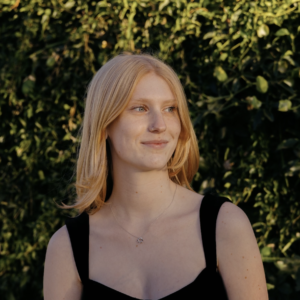Five years ago, after publishing my first big piece, I received an email.
How dare you? You’ll be hearing from my lawyers. Or something along these lines.
I’d written a basic coverage piece about a local high school party, where red solo cups had been arranged to look like swastikas in a game of cup pong. The original pictures of the party had gone viral on social media and I knew a few kids from the area.
However, the parents of the guilty parties didn’t appreciate my coverage. Despite the public Snapchat name of the girl who originally posted the swastikas, her mother was threatening legal action against me. You cannot use my daughter’s name. She’s wrong, of course. But my editor didn’t want to risk either my safety or any action against the paper¹, so we took out the name. And a few other details. This is how Jewish media worked in Orange County.
At 22, I’ve been in Jewish media for about six years now. My Muck Rack page cites Times of Israel, My Jewish Learning, Hey Alma, TC Jewfolk, New Voices Magazine; they forget my particularly hard-hitting article about Peeps in The Nosher. I started writing these sorts of feature-pieces within the Jewish media sphere as a teen, and as a result I became a well-trained, highly editorial media writer. I was well-enough researched, knowledgeable about the relevant news cycle, always sniffing out a story.
I moved from outlet to outlet, but always took this mentality with me. Jewish media asks: what’s relevant for Jews right now? So I covered celebrities, television, and holidays. But my best work was always produced when I wrote very earnestly. When I stopped covering, reporting, broadcasting. I garnered the most attention with a piece about my mother, a Fairfax Jew with a shopping habit. This isn’t to say that editorial writing isn’t opinionated – I certainly made my points. But my stories didn’t always provoke that earnestness, and I carefully watched my content, producing for Jewish general audiences.
When I applied to New Voices, I asked for — something else. I asked if the magazine would publish my rejected works. In particular, I’d been pitching an article about the vastness of our neighboring universe, and why I cared so much about it as a Jew. Jewish media couldn’t find a good spot for it. Jewish religion, current events, and student life didn’t mix so well with science. Until we decided it did. Clearly, my more expressive pieces needed a home.
My astronomy piece hurtled me back into a much more descriptive space. With a great sense of loss, I realized I hadn’t been all that descriptive in a while. The piece ultimately emerged as an outpouring of love, for both a Jewish oneness and a universe full of the divine. I wrote almost in vignette, with a style suitable only for great appreciation. Between assignments and workshops, the magazine gifted me intention and care to bury in my pieces. There was no business to be done or character to analyze (or name to exclude), but there was a creativity.
The Jewish media landscape, like much of journalism, also heavily relies on the one-on-one. Freelancers battle to carry a bulk of the publishing, interacting almost exclusively with their editors. Once you snatch an idea, it’s a few weeks turnaround at most. You’ve got to be relevant, but not always profound. This can make for some great coverage, some witty articles, and a lot of opportunity. But turning around an article hasn’t felt like much of a craft, as it has a technical skill. Judaism is a niche and you’re expected to find a talking point.
However, workshopping with the fellowship group is an art. We write and share our work as a group, sketching outlines into full pieces and interacting closely with each other’s interests and identities. I feel as though I learn a lot through our meetings, rather than receive clinical feedback. I think this dynamic is exemplified through events such as our Jewish Student Media Conference, where we share knowledge and expertise, rather than focusing on critique. Or during our public reading, where our mentors² and family gathered for us to speak our hard work into the room. I can’t remember the last time I read my writing aloud, instead of agonizing over how people read it in their heads.
I hope to continue writing more communally, more meaningfully, and with a continued connection to this creative freedom. Of course, I am acutely aware that Jewish journalism holds value for the Jewish community and has stakes worth defending. But engaging with more untethered publications has allowed me to navigate a landscape designed for a Jewish consumer with a little artistry. I think that popular Jewish media could use more expression, bringing incredible Jewish publications like New Voices out from under the woodwork. These are the places where I find the most profound Jewish work, in both others and myself.
¹And I don’t blame them
² An immense thank you to Lonny Goldsmith and Gila Axelrod for being the aforementioned incredible mentors and guiding me throughout my writing.
